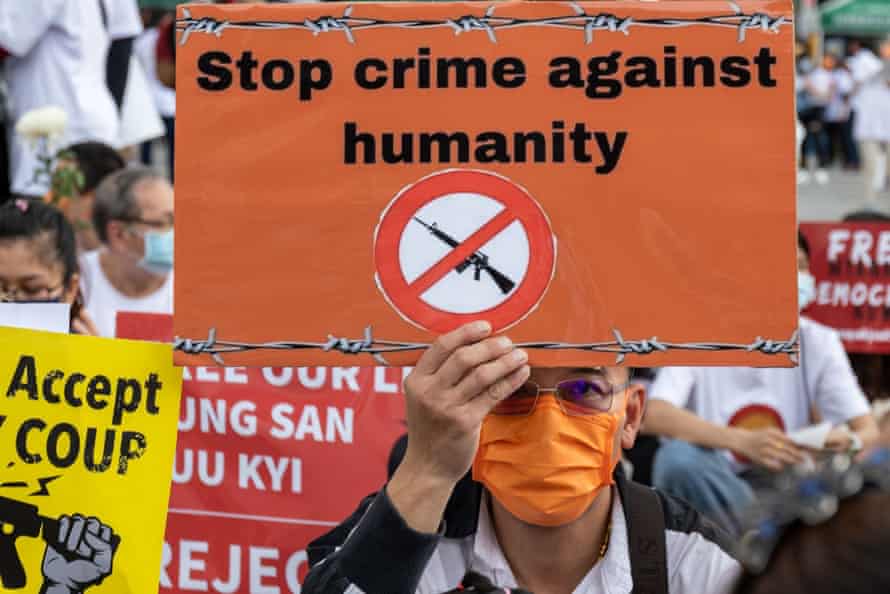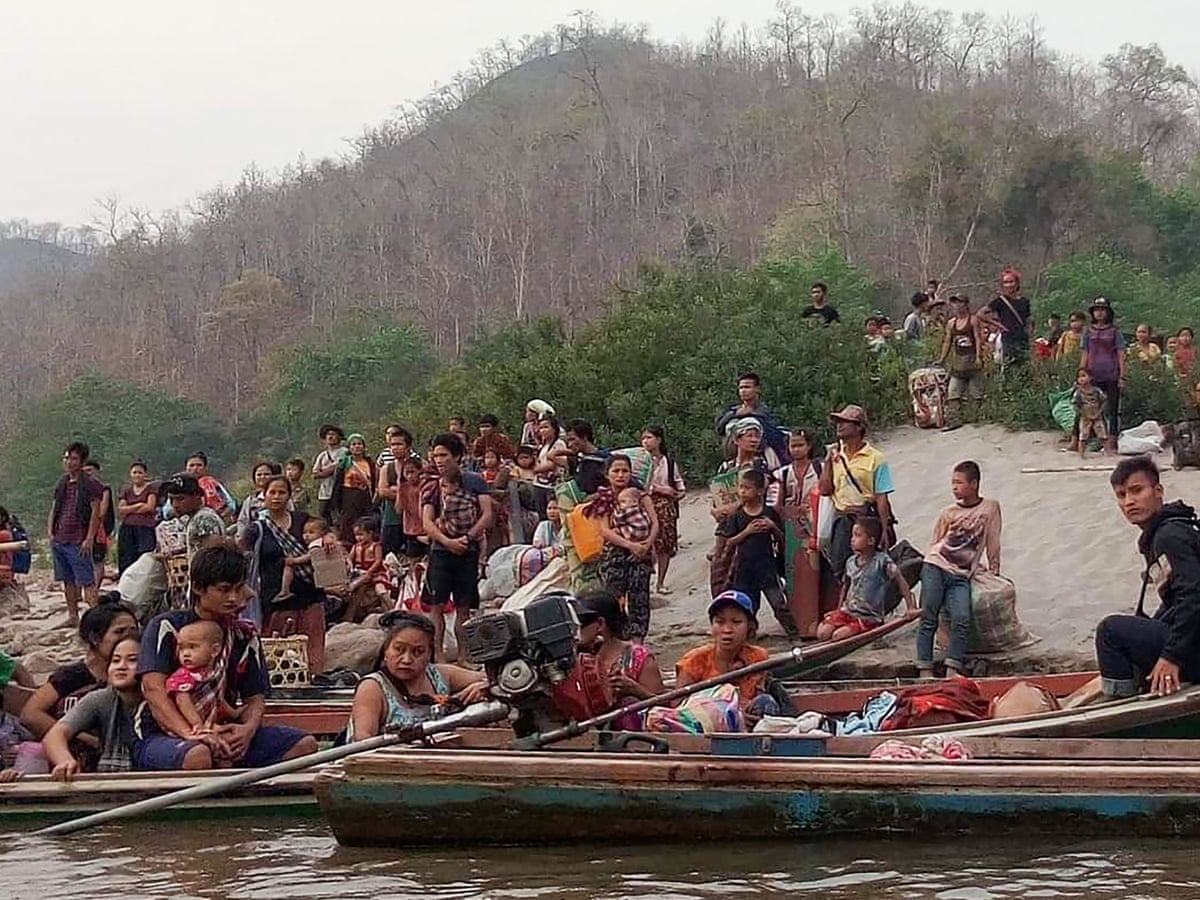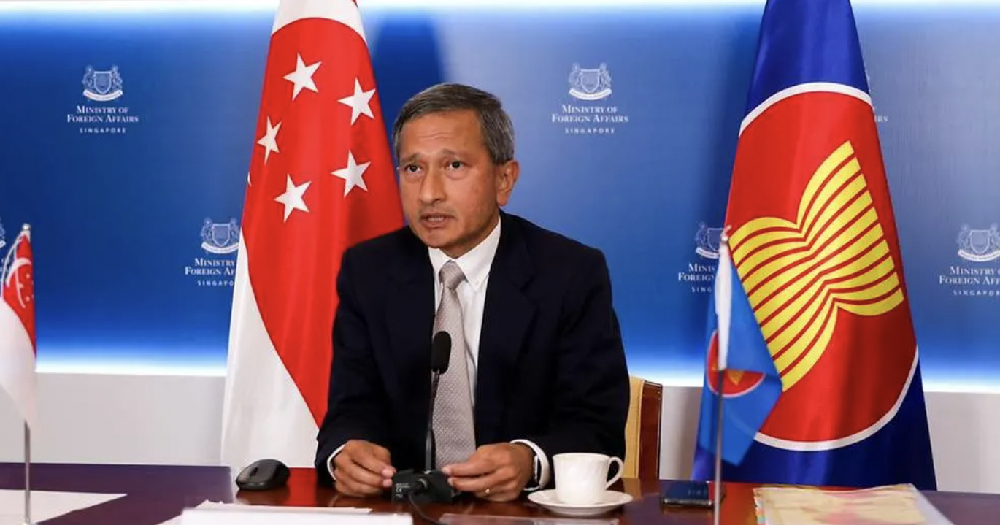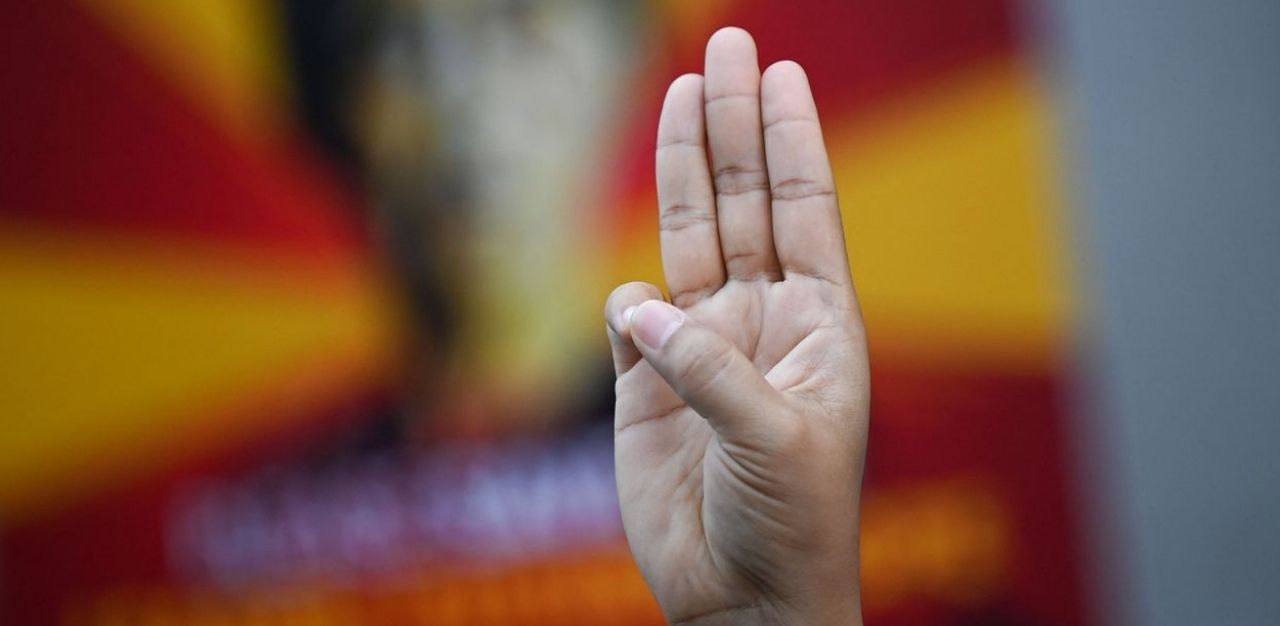As events in Myanmar continue to worsen, increased pressure mounts on Singapore and other global powers to help control the situation. Here is a snapshot of what has transpired in the past weeks.
On 1 April, the horrific news of six-year-old Khin Myo Chit shot dead as she ran into her father’s arms shook the world. Her death and hundreds of others killed in clashes with security forces have contributed to a mounting death toll that has grown to nearly 600 since the February 1 coup.
Despite the violence that has spread from the streets into people’s homes, protesters continue to rise against the military junta, with some calling it a “spring revolution”. The uprising of Myanmar’s people is to oppose the overthrow of an elected government led by Aung San Suu Kyi and the return of military rule. The movement’s latest show of dissent this week was to join hands with residents to clap together in various parts of Yangon, Myanmar’s main city.
According to protest leader Ei Thinzar Maung on Facebook, the five-minute round of applause would honour “Ethnic Armed Organisations and Gen Z defence youths who are facing the military across the whole of Myanmar.”
The military’s crackdown on protests and strikes across the country and its throttling of internet access continues as Brunei, the chair of the 10-member Association of Southeast Asian Nations (ASEAN), announced its support on Monday (5 April) of a regional leaders’ meeting to discuss developments in Myanmar.
After a meeting between Brunei Sultan Hassanal Bolkiah and Malaysian Prime Minister Muhyiddin Yassin, a joint statement from both countries say that ministers and senior officials have been tasked to carry out “necessary preparations for the meeting that will be held at the ASEAN Secretariat in Jakarta, Indonesia.” No date for the high-level meeting was given.
Both leaders expressed concern over the rising number of fatalities in Myanmar. According to the statement, “They urged all parties to refrain from instigating further violence, and for all sides to immediately exercise utmost restraint and flexibility.”
Other members, including Indonesia, the Philippines and Singapore have also expressed alarm over the killings of demonstrators. Last week, their foreign ministers have separately met with their counterpart in China, who is an influential northern neighbour to Myanmar.

Thousands of people fleeing to Thailand
The escalating crisis has since spilled across Myanmar’s borders into India and Thailand.
Tens of thousands of unarmed civilians, including women and children, have since been displaced from Myanmar’s border regions, following air strikes by the national army, or Tatmadaw, late last month. The bombings were a retaliation against the ethnic armed group Karen National Union (KNU), which seized a military base, killing 10 army officers.
The KNU has accused the military of deploying “excessive force by engaging in non-stop bombing and airstrikes” from 27 to 30 March, which it says has “caused the deaths of many people including children”.
Many ethnic Karen refugees have also been wounded, according to Dave Eubank, a member of the Free Burma Rangers, a humanitarian relief agency that delivers medical and other assistance to villagers.
One witness, who watched hundreds of people crossing river borders into Mae Hong Son on 29 March, described the scene as “chaotic”.
“There were many children and women. It seemed like they had basic supplies to sustain themselves, but I don’t know how long they can last without help,” says La Rakpaoprai, who buys goods in the mountainous border village of Mae Sakoep and sells them in remote areas.

But AP News has reported that three people familiar with the matter have said the Thailand government has started sending many Myanmar people back.
“They told them it was safe to go back even though it is not safe. They were afraid to go back but they had no choice,” said a spokesperson for the Karen Peace Support Network, a group of Karen civil society organisations in Myanmar.
Thai authorities, however, have denied sending the refugees back. While Thailand’s Prime Minister Prayut Chan-o-cha said on 29 March that the country was preparing for a flood of refugees from Myanmar.
“We don’t want to have an exodus into our territory, but we will observe human rights, too,” he said. “How many refugees are expected? We have prepared an area, but how many – we are not talking about that.”
More calls for action and a global “three cuts” strategy
The Special Advisory Council for Myanmar released a statement on 28 March, calling for global action in the form of a “three cuts” strategy to combat the Tatmadaw. In its statement, it classified the military as a “terrorist group”.
The “three cuts” strategy is as follows. Firstly, the military situation in Myanmar is to be upheld in the international criminal court. Second, an internationally and comprehensively monitored arms embargo should be enforced. Thirdly, financial sanctions and cuts should be enforced upon senior military officials and all military-owned companies.
“Myanmar people are calling for international action under the responsibility to protect,” said Chris Sidoti, an Australian international lawyer and member of the advisory council. “In response, we want to see three cuts imposed on the Myanmar military: cut the weapons, cut the cash, cut the impunity.”
In its release, the experts’ group calls for individual states and nations to act by imposing their own action in relation to the three cuts strategy and to support the anti-coup resistance. It also calls for urgently needed humanitarian assistance to reach both urban and ethnic areas of Myanmar.
What are Singapore and the rest of the world doing?
This was one of many calls for outside intervention since the coup began.
Governments in the European Union, US and UK have threatened to reconsider sanctions that had been lifted in connection with Myanmar’s transition to democracy. While also implementing sanctions on Myanmar’s armed forces to target businesses that they run.
As for Singapore, irate local and international netizens have asked that the nation’s financial institutions stop the processing of transactions for banks linked to Myanmar’s military. Many companies were also singled out in their payments that end up in the accounts of military leaders in power.
The Monetary Authority of Singapore, however, said on 23 February that its regular surveillance of the banking system has not found “significant funds” from Myanmar individuals and companies in banks in Singapore.
Singapore is the largest foreign investor in Myanmar, with cumulative approved investments of US$24 billion as of December last year. The major proportion of Singapore’s investments in Myanmar occurred in the last five years under the NLD government.

So far, Singapore has not taken direct action against the military junta save for condemning the increasing bloodshed and calling for parties to work towards a peaceful solution.
Speaking in Parliament on 28 February, Foreign Affairs Minister Vivian Balakrishnan called on the military government to exercise restraint and stop the use of lethal force against its citizens. He also urged all parties to find “long-term peaceful political solutions”, while acknowledging that this process was possible only after the immediate release of its civilian leaders Aung San Suu Kyi and Win Myint.
“We, therefore, call on all parties in Myanmar to engage in discussions and to negotiate in good faith, to pursue long-term peaceful political solutions for them to achieve national reconciliation, including a path to find a way to get back to the path of democratic transition,” said Dr Balakrishnan. “And we believe this can only begin if President Win Myint, State Counsellor and Foreign Minister Aung San Suu Kyi, and other political detainees are immediately released.”
More recently on 26 March, after meeting with Indonesian President Joko Widodo, Dr Balakrishnan reiterated that Indonesia and Singapore did not believe in foreign interference in domestic politics, but he hoped that Myanmar would take into consideration the views of the regional leaders.
And following a meeting with his Chinese counterpart Wang Yi on 31 March, both ministers called for “a de-escalation of the situation, a cessation of violence and the commencement of constructive dialogue among all sides.”
But human rights activists have insisted that these statements are not enough. Instead they have pushed for sanctions to be implemented that would directly hurt the financial interests of Myanmar’s military elite.
Matthew Smith, Co-founder of Southeast Asian rights group Fortify Rights told This Week in Asia that “the statement alone won’t be sufficient”. He says, “Singapore banks have long been the playground of Myanmar’s military elite, and have long held Myanmar public funds, including multi-billion-dollar gas revenues.”
Another human rights activist, London-based Executive Director of the Burma Human Rights Network called Singapore’s new stance a “public relations campaign”, saying that Singapore is “all about their own interests”.
In equally relevant observations, many experts have noted that blanket sanctions have historically not worked in Myanmar, citing the sanctions that followed civil riots and a massacre in 1988.
Wrote retired diplomat Bilahari Kausikan in Five Hard Truths About Myanmar, “The Tatmadaw, for its part, clearly miscalculated the extent of popular resistance to the coup. But it will not bow to pressure. Additional sanctions will therefore only make it even more difficult for the Tatmadaw to climb down from the position that it has taken.”
What can the public do?
Beyond urging the Singapore Government to act with the petitions and letters that have been circulating, the public has also organised actions that directly benefit the people of Myanmar.
Besides keeping abreast of the situation in Myanmar, individuals can keep an eye out for ground-up movements and initiatives in Singapore that render direct assistance to Myanmar’s population. One such initiative was a pop-up on 2 April held at the art gallery Starch, which saw six Myanmar artists sell prints, totes and other artistic creations to raise funds for civilians affected by the coup. It was organised by Lahpet Wyne, a new group that formed in order to support What’s Happening in Myanmar. While the pop-up is no longer running, the organiser will soon announce avenues to purchase art to raise funds for Myanmar on its Instagram account.
Also read about the despair and hope of Myanmar nationals living and working in Singapore here.





























